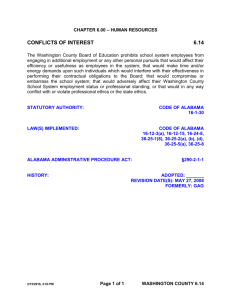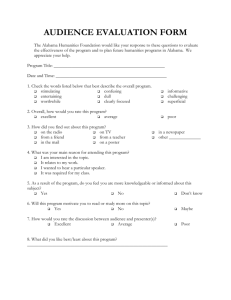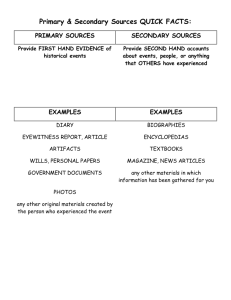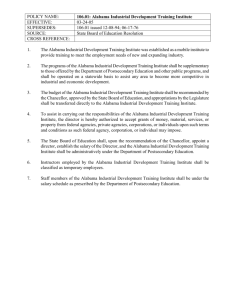Frequently Asked Questions - Alabama Department of Public Health
advertisement
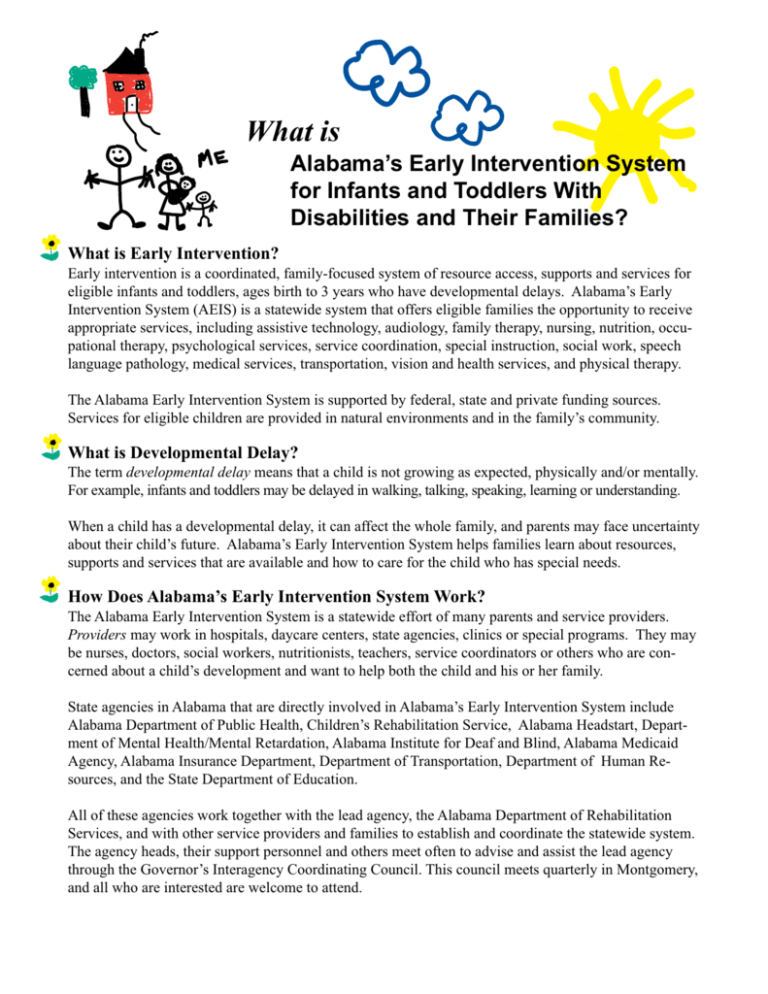
What is Alabama’s Early Intervention System for Infants and Toddlers With Disabilities and Their Families? What is Early Intervention? Early intervention is a coordinated, family-focused system of resource access, supports and services for eligible infants and toddlers, ages birth to 3 years who have developmental delays. Alabama’s Early Intervention System (AEIS) is a statewide system that offers eligible families the opportunity to receive appropriate services, including assistive technology, audiology, family therapy, nursing, nutrition, occupational therapy, psychological services, service coordination, special instruction, social work, speech language pathology, medical services, transportation, vision and health services, and physical therapy. The Alabama Early Intervention System is supported by federal, state and private funding sources. Services for eligible children are provided in natural environments and in the family’s community. What is Developmental Delay? The term developmental delay means that a child is not growing as expected, physically and/or mentally. For example, infants and toddlers may be delayed in walking, talking, speaking, learning or understanding. When a child has a developmental delay, it can affect the whole family, and parents may face uncertainty about their child’s future. Alabama’s Early Intervention System helps families learn about resources, supports and services that are available and how to care for the child who has special needs. How Does Alabama’s Early Intervention System Work? The Alabama Early Intervention System is a statewide effort of many parents and service providers. Providers may work in hospitals, daycare centers, state agencies, clinics or special programs. They may be nurses, doctors, social workers, nutritionists, teachers, service coordinators or others who are concerned about a child’s development and want to help both the child and his or her family. State agencies in Alabama that are directly involved in Alabama’s Early Intervention System include Alabama Department of Public Health, Children’s Rehabilitation Service, Alabama Headstart, Department of Mental Health/Mental Retardation, Alabama Institute for Deaf and Blind, Alabama Medicaid Agency, Alabama Insurance Department, Department of Transportation, Department of Human Resources, and the State Department of Education. All of these agencies work together with the lead agency, the Alabama Department of Rehabilitation Services, and with other service providers and families to establish and coordinate the statewide system. The agency heads, their support personnel and others meet often to advise and assist the lead agency through the Governor’s Interagency Coordinating Council. This council meets quarterly in Montgomery, and all who are interested are welcome to attend. How Does the Early Intervention System Work in Your Community? In Alabama, parents and other family members of infants and toddlers with developmental delays are directly involved with the service providers in the care of their young child. Parents and family members may also become involved with groups called district coordinating councils, where interested individuals meet to get to know each other, to share information about resources and specific services within their own community, and to learn more about the statewide Early Intervention System. Coordination within the council and community can help families understand what resources are available for their family and meet other parents who may have similar interests. Alabama’s Early Intervention System provides evaluation and assessment to identify early intervention supports and services for a particular child and family. Once the child has been evaluated and is found to be eligible, service providers, including a service coordinator, help the family develop an Individualized Family Service Plan (IFSP) that describes what supports and services are appropriate. Services that are outlined on the IFSP can be provided to the child and family in the family’s home, at a daycare center or in other natural environments within the family’s community. What is AEIS Child Find? Child Find is Alabama’s statewide effort to locate, identify and evaluate children who may have special needs and may benefit from supports and services. Anyone may receive referral information or find out about available resources for infants and toddlers ages birth to 3 years by calling the toll-free AEIS Child Find number 1-800-543-3098. For children over 3, contact your local school system or the State Department of Education. To begin the process, family members who contact AEIS Child Find will be asked a few simple questions: - What is the child’s name, birth date and social security number? - What is the name, phone number and address of the parent or guardian? - What is your name, phone number and address? - What is the reason for calling Child Find? Many parents call Child Find, but some choose to ask a service provider they already know to make the call. How Can Families and Providers Learn More About Alabama’s Early Intervention System? Throughout Alabama, district early intervention coordinators and community organizations work to reach more parents, family members and service providers. For more information, call the toll-free number, 1-800-543-3098. Web access is also available at www.rehab.state.al.us. For more information contact: Alabama’s Early Intervention System Alabama Department of Rehabilitation Services 2129 East South Boulevard Montgomery, AL 36116-2455 (334) 281-8780 • 1-800-543-3098 • TTY 1-800-499-1816 Fax: 334-613-3494 www.rehab.state.al.us This information is available in alternate format upon request. C: AEISQ&AFactSheetforWeb6’03
